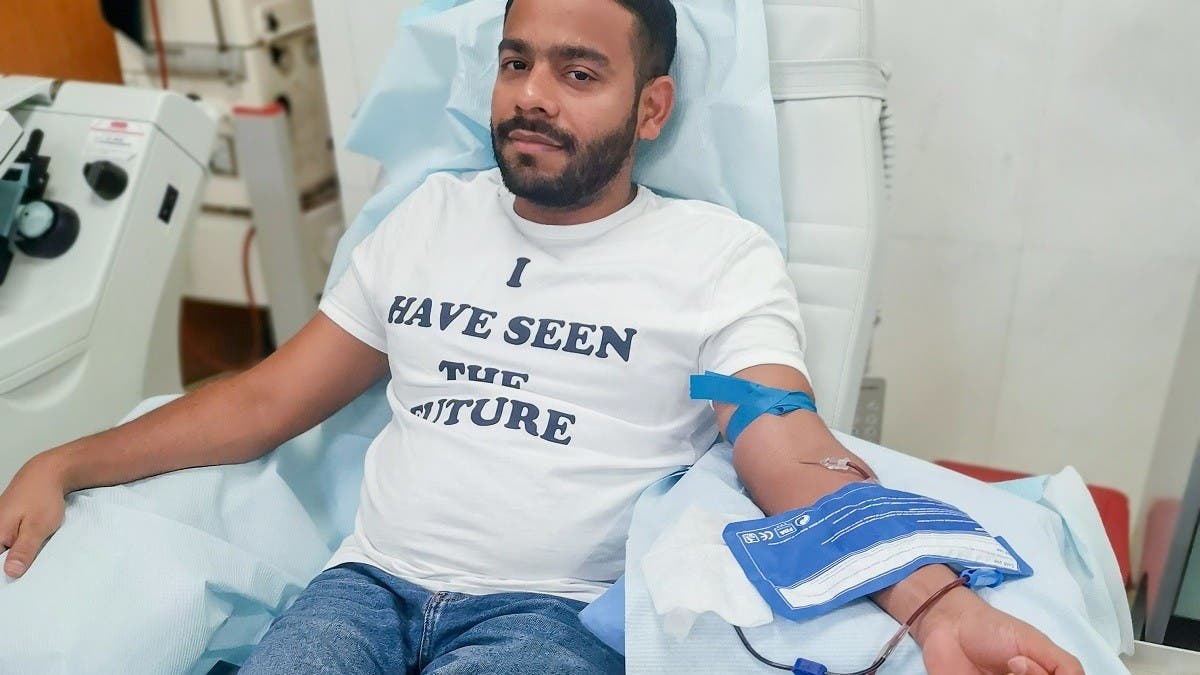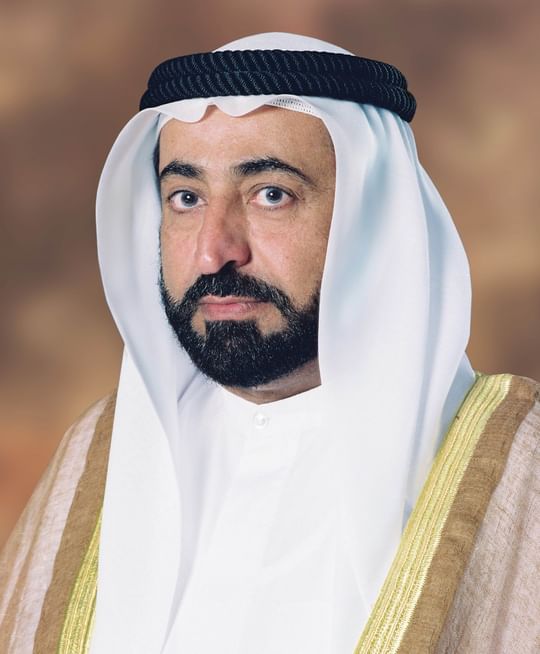For as long as he can remember, Abu Dhabi-based Indian expatriate Roy Rajan feared needles and blood.
Despite having the rare O-negative blood type, popularly known as the ‘universal donor,’ Rajan’s fear stopped him from donating blood.
For the latest headlines, follow our Google News channel online or via the app.
He recalls an incident five years ago when he received a phone call from someone urging him to donate O-negative blood for an emergency case.
Rajan decided it was time to get out of his comfort zone and mustered up the courage to walk in for his first-ever blood donation.
Later that night, Roy walked out of the blood bank with a new outlook on life.
“All my life, I had this fear of blood and needles to such an extent that I tried to avoid medical check-ups as much as possible,” he said, as World Blood Donor Day is marked across the globe. “That night I realized the importance of the act of donating blood and decided I would keep doing it as much as possible.”
He continued, “The feeling was awesome, and I realized it was so much bigger than my fear.”
Since then, there has been no turning back for this 34-year-old who has been living in the UAE for the last 10 years.
Hailing from Thiruvalla, Kerala, Rajan works as a senior marketing executive, and despite his hectic work schedule, diligently donates blood every three months.
In the last five years, he has donated blood 20 times and is glad to make a difference in people’s life.
O-negative is a rare blood group found only in seven percent of the population.
It is always in demand as it can be given to patients of all blood types. In trauma situations, it is the first choice for transfusion before the doctor determines the patient’s blood type.
For this reason, an O-negative donor is referred to as the ‘universal donor.’
According to the Red Cross, healthy adults must keep a gap of at least eight weeks (56 days) between blood donations.
“After the first donation, SEHA blood bank officials send messages whenever there is a shortage or emergency,” said Rajan. “These messages are touching and give me the encouragement I need to donate. I go once every three months and do my bit. Of course, I am still apprehensive before stepping into the blood bank due to my fear of needles, but then I remind myself that I need to do this to help others.”
The untimely demise of Rajan’s mother ten months ago opened his eyes to the importance of timely support in saving lives.
Her passing, he said, gave him the renewed determination to save lives through blood donation. Even though he still experiences butterflies in his stomach before he steps into the blood bank, Rajan reminds himself that the blood he’s donating will help somebody’s loved one.
As a regular blood donor, Rajan has become a familiar face at the blood bank.
Aware of his discomfort with needles, medical staff always ensure he is comfortable during the donation process.
Even though he is someone who regularly donates blood, he understands the
anxiety and misconceptions people have about blood donation.
“Blood is valuable, and you can’t just go and buy it over the counter. I feel great when I’m there donating blood and hear them say that someone’s life was saved because they got blood in time,” he said. “My message to people who are considering blood donation but are held back by anxiety is that you don’t need to worry. After all, the feeling of helping someone is more satisfying than being held back by your fear.”
World Blood Donor Day is marked on June 14 each year, as countries around the world raise awareness of the need for safe blood and blood products and to thank voluntary, unpaid blood donors for their life-saving gifts of blood.
Al Arabiya English has previously reported how doctors at hospitals and clinics across the UAE are pleading for more people to come forward and give blood.
Health specialists are reporting falling numbers of blood donations in the wake of the COVID-19 pandemic.
While many patients require blood donations, heath experts across the UAE say fewer people are willing donate blood over coronavirus fears.
One person’s donation is enough to potentially save three lives in the hospital, according to local experts, while three teaspoons of blood can save a baby’s life.
According to the US Food and Drug Administration (FDA), every two seconds, someone needs a blood transfusion.
On World Blood Donor Day 2022, the World Health Organization is calling on people all around the globe to give blood in a gesture of solidarity.
The organization says safe blood and blood products and their transfusion are a critical aspect of care and public health. They are key in treating people suffering from a range of diseases and as a result of accidents, natural disasters and armed conflict. The need for blood is universal, but access to it is limited – especially in low – and middle-income countries, where shortages particularly impact women and children as these tend to be the people who need blood most.
Becoming a regular voluntary blood donor is a simple but selfless step that everyone can take to strengthen their communities, support local health systems and save lives.
Read more:
Blood donations plunge while COVID-19 cases surge: UAE doctors in donation plea
Over 80 pct of American adults now have COVID-19 antibodies: Blood donor study
Caveat of more people getting vaccinated against COVID-19: Shortage of blood donors


 World3 years ago
World3 years ago
 World3 years ago
World3 years ago
 Business1 year ago
Business1 year ago
 Entertainment7 years ago
Entertainment7 years ago
 World7 years ago
World7 years ago
 Entertainment7 years ago
Entertainment7 years ago




